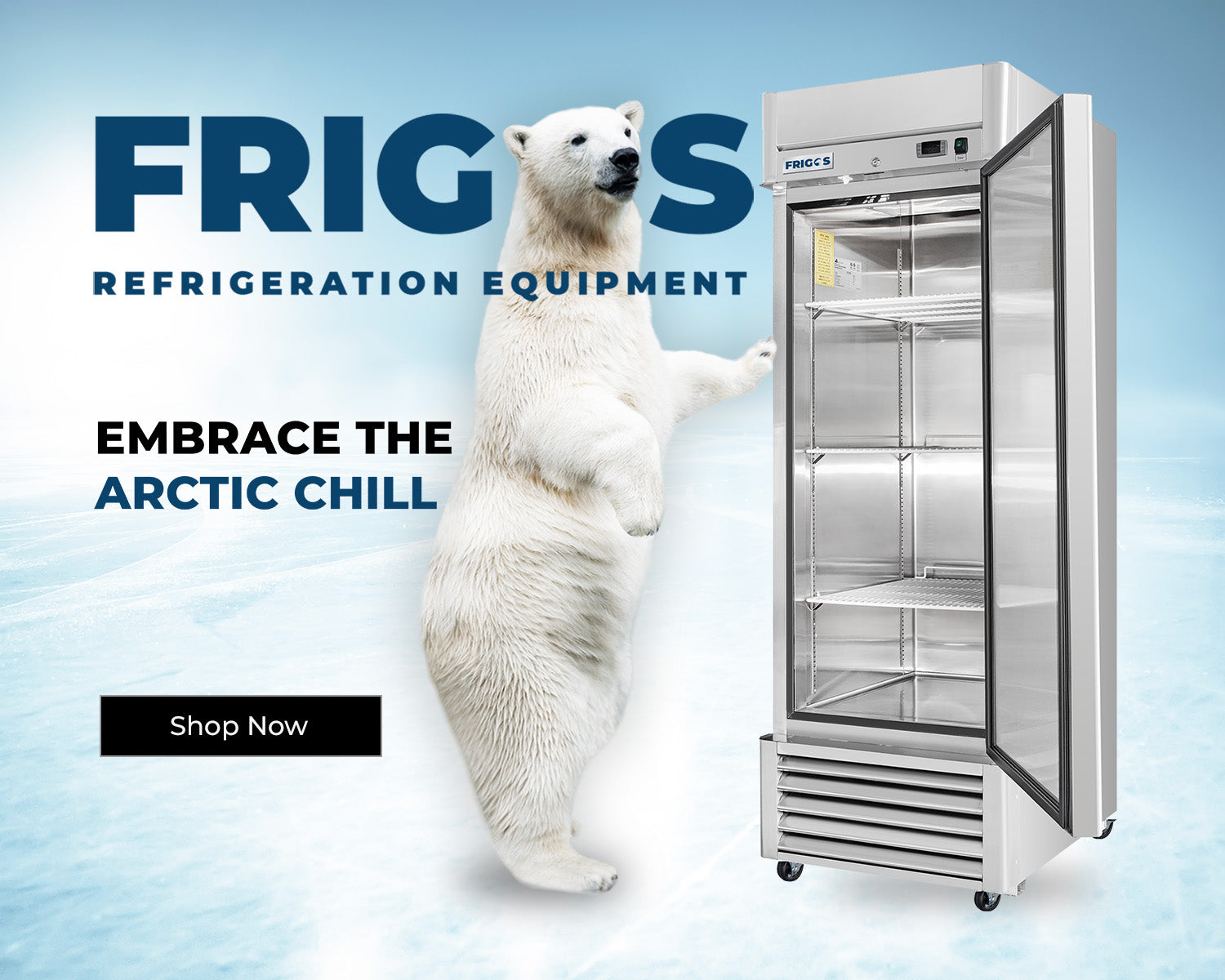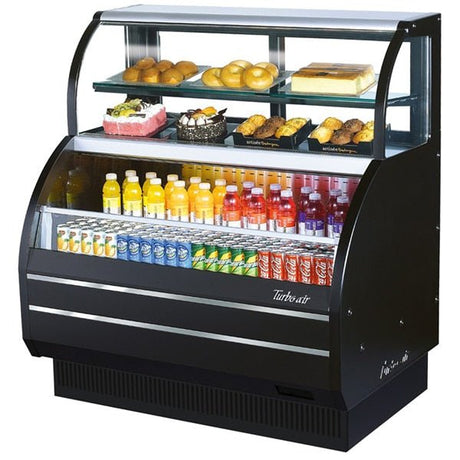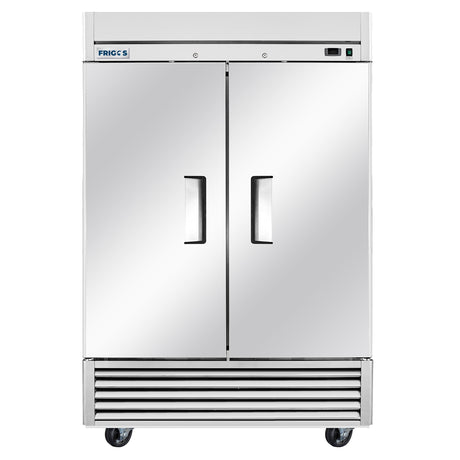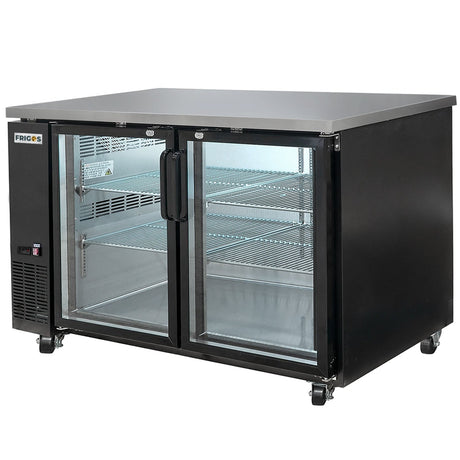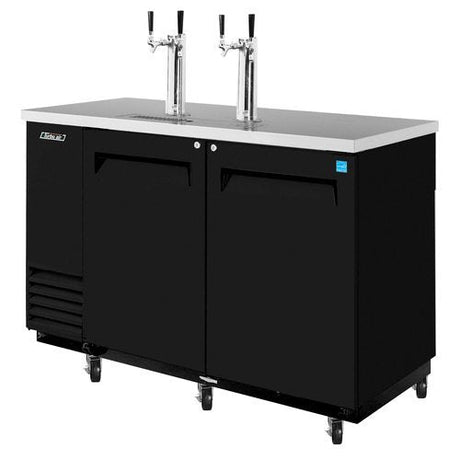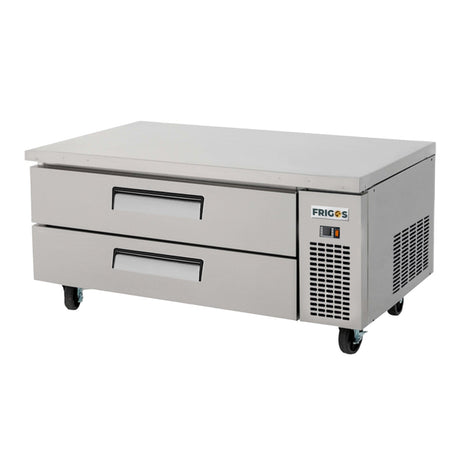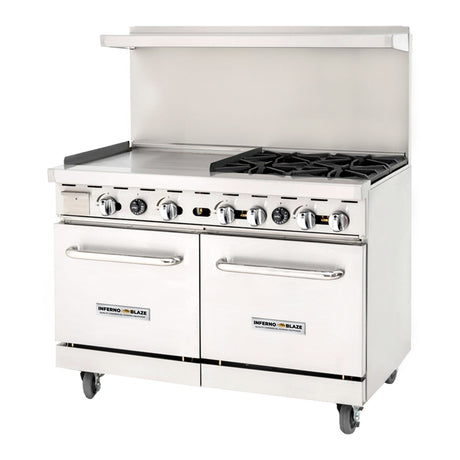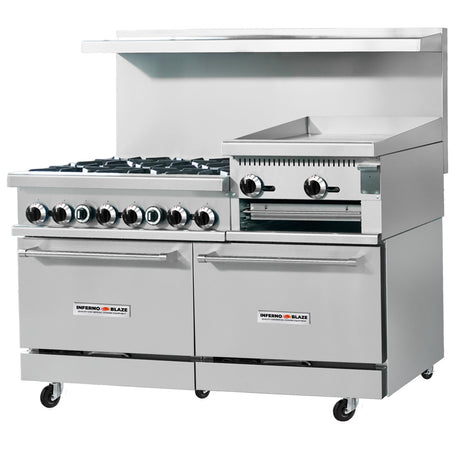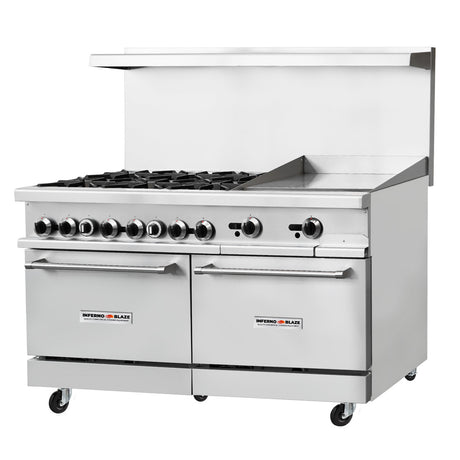A great mixer does more than just combine ingredients; it streamlines your entire workflow. Think about the time saved when you can prepare large batches of dough at once, freeing up your team to focus on other critical tasks. Consider the creative freedom you gain when you have a machine that can handle anything from delicate meringues to dense, artisan breads without straining. A commercial mixer is an investment in efficiency. It’s a versatile workhorse that can expand your menu possibilities with various attachments. This article will help you understand the true value of upgrading your equipment and guide you in selecting a heavy duty mixer for baking that will pay for itself in saved time and perfect results.
Key Takeaways
- Prioritize the Motor and Construction: A powerful motor and durable, all-metal build are what separate a true workhorse from a machine that will quit on you. Look for these features first to ensure your mixer can handle dense doughs and constant use without overheating.
- Think Beyond the Initial Price Tag: The right mixer is a long-term investment in your kitchen's efficiency. Spending more upfront on a reliable, commercial-grade machine saves you from future costs related to repairs, downtime, and inconsistent product quality.
- Define Your Daily Demands Before You Shop: Get clear on your typical batch sizes and the main tasks you'll need the mixer for. Knowing whether you're making heavy bread dough or light batters will help you choose the right size and power level for your kitchen.
Why Invest in a Heavy-Duty Mixer?
If you’ve ever watched a standard stand mixer wobble and strain while kneading a heavy bread dough, you already understand why a heavy-duty model is essential for a professional kitchen. While home mixers are great for the occasional batch of cookies, they simply can’t keep up with the daily demands of a commercial setting. Investing in a heavy-duty mixer is about getting a machine that works as hard as you do, day in and day out.
The most significant difference is the motor. Commercial mixers are engineered with powerful motors that can handle dense, heavy doughs for pizza, artisan bread, and large-scale batters without overheating. This raw power ensures your ingredients are mixed thoroughly and consistently every single time, which is critical for a high-quality final product. It’s a foundational piece of cooking equipment for any serious bakery, pizzeria, or restaurant.
Beyond the motor, these machines are built for durability. Made with tough, long-lasting materials, they are designed for constant use in a busy kitchen. Their larger bowl capacities also mean you can prepare bigger batches at once, saving a tremendous amount of time and labor. Instead of running multiple small batches, your team can get everything done in one go and move on to other important tasks. A heavy-duty mixer isn't just an upgrade; it's a core piece of restaurant equipment that supports your workflow, protects your product quality, and stands up to the daily grind.
What to Look For in a Heavy-Duty Mixer
Choosing the right heavy-duty mixer isn't just about picking the one with the most features; it's about finding a reliable partner for your kitchen. A commercial mixer is a serious investment, and knowing what to look for will help you select a machine that can handle your daily demands without breaking a sweat. From the power under the hood to the bowl it comes with, every detail matters. Let's break down the four key things you need to check before you buy.
Check the Motor Power
Think of the motor as the heart of your mixer. For a professional kitchen, you need one that’s strong enough to power through dense bread doughs and large batches of batter day after day. Look for mixers with robust motors, typically in the 660W to 900W range. A higher wattage generally means more power, which prevents the motor from straining or overheating during tough jobs. This isn't just about speed; it's about torque—the rotational force needed to mix heavy ingredients effectively. A powerful motor ensures consistent results and protects your investment from burning out when you need it most.
Find the Right Bowl Size and Material
The mixing bowl is where the magic happens, so its size and material are critical. Commercial mixer bowls can range from 5 quarts to over 9 quarts. To choose the right size, consider your typical batch volume. A larger bowl allows you to prepare more at once, which is a huge time-saver in a busy kitchen. When it comes to material, stainless steel is the industry standard for a reason. It’s incredibly durable, resists chipping and staining, and is easy to sanitize, meeting health standards for food preparation. Investing in the right bowl means you can work more efficiently and maintain a clean, professional workspace.
Look for Variable Speeds and Useful Attachments
Precision is key in baking, and having multiple speed settings gives you complete control over your mixing process. Most heavy-duty mixers offer between 6 and 10 speeds, allowing you to gently fold in delicate ingredients or whip cream at high speed. Also, check what attachments are included. A standard set usually comes with a dough hook, a flat beater, and a wire whisk, which covers most of your baking needs. These tools transform your mixer into a versatile piece of restaurant equipment that can handle everything from kneading bread to making meringue, helping you perfect a wide range of recipes.
Make Sure It's Built to Last
A commercial mixer should be built to withstand the rigors of a professional kitchen. Look for models with a solid, durable construction, often described as "commercial grade." Many high-quality mixers feature an aluminum die-cast body for stability and strength, preventing the machine from wobbling during heavy-duty tasks. Stainless steel components, from the bowl to the mixing attachments, are also a sign of quality and longevity. A well-built machine is a reliable one, ensuring it will be a fixture in your kitchen for years to come. This focus on durability is what separates professional cooking equipment from standard home appliances.
The Best Heavy-Duty Mixer Brands for Professionals
When you’re ready to find the right mixer, it helps to know the key players in the game. Certain brands have built a reputation for power, durability, and performance that stands up to the demands of a professional kitchen. While each has its own unique strengths, they all deliver the reliability you need to mix batch after batch without a hitch. Let's break down some of the top brands you’ll encounter and what makes them a solid choice for any serious baking operation. From industry staples to specialized powerhouses, one of these is sure to be the perfect fit for your kitchen.
Frigos Commercial Mixers
While you might know the Frigos name for its top-tier refrigeration equipment, the brand brings that same commitment to durability and performance to its commercial mixers. Built for the demanding environment of a professional kitchen, Frigos mixers are known for their robust design and unwavering reliability. They are engineered to handle heavy, dense doughs and large-volume batches day in and day out. If you’re looking for a no-fuss workhorse that you can count on, Frigos delivers the solid construction and powerful motor needed to keep your production line moving smoothly. It’s a practical choice for bakeries, pizzerias, and restaurants that prioritize long-term value and consistent results.
KitchenAid Professional Series
There’s a reason the KitchenAid Professional Series is a fixture in so many commercial and home kitchens. These mixers are legendary for their performance and durability. The Professional 600 model, for instance, comes with a powerful 575-watt motor and a generous 6-quart bowl, making it perfect for tackling large batches of bread dough or cake batter. Its bowl-lift design provides excellent stability and makes it easy to add ingredients while mixing. Bakers often praise its planetary mixing action, which ensures all ingredients are thoroughly incorporated. For a reliable machine that consistently delivers, a KitchenAid stand mixer is a trusted industry standard.
Bosch Universal Mixer
If your bakery is all about high-volume output, the Bosch Universal Mixer is designed for you. This machine is a true powerhouse, built to handle incredibly large quantities with ease. It features a 500-watt motor that sits underneath the bowl, giving you an open-top design for easy access. With a 6.5-quart bowl, it can mix and knead up to 14 pounds of dough at once, making quick work of big recipes. Its unique dual-tool design with a dough hook and whisks allows for incredibly efficient mixing and whipping. For businesses that need to produce a lot of product without sacrificing quality, the Bosch Universal is an absolute beast.
Ankarsrum Assistent Mixer
The Ankarsrum Assistent Mixer is a masterpiece of Swedish engineering and a favorite among artisan bakers. What sets it apart is its unique design where the bowl rotates instead of the attachment. This, combined with its powerful 600-watt motor and massive 7.4-quart bowl, allows it to handle up to 11 pounds of dough. The included dough roller gently mimics the motions of hand-kneading, developing gluten perfectly without overworking the dough, which results in incredibly soft and airy bread. If you specialize in high-quality bread and prioritize texture and consistency, the Ankarsrum is an investment that truly pays off in the final product.
Cuisinart Stand Mixers
Cuisinart offers a fantastic balance of power, user-friendly design, and value. The Cuisinart Precision Master SM-50 is a great example—it’s relatively lightweight at just 16.5 pounds but packs a punch with its 500-watt motor. The intuitive speed dial makes it simple to control, and its slow-start feature is a lifesaver for preventing flour from flying everywhere when you begin mixing. It’s also surprisingly versatile, capable of whipping as little as a quarter cup of egg whites to perfection. For kitchens that need a reliable, easy-to-use mixer that can handle a variety of tasks without taking up too much space, Cuisinart is a solid and dependable choice.
What to Expect at Different Price Points
When you’re shopping for a heavy-duty mixer, the price tag often tells a story about its power, capacity, and how long it will last in a busy kitchen. Understanding the different tiers can help you find the right balance between your budget and your baking ambitions. Think of it less as a simple purchase and more as an investment in your kitchen’s workflow. A mixer that can’t keep up will only slow you down, while the right one can become the reliable heart of your operation.
Whether you’re just starting out or looking to upgrade, knowing what your money gets you is the first step toward making a smart decision. We’ve broken down the mixer market into three main categories to give you a clear idea of what to expect from each. This way, you can match your specific needs—from daily bread dough to occasional batches of cookies—with a machine that’s built for the job. Let’s look at what you can find at entry-level, mid-range, and top-tier price points.
Entry-Level Mixers (Under $800)
In the under-$800 range, you’ll find mixers that are perfect for home bakers, small cafés with light baking needs, or as a starting point for a new food business. These machines are designed to handle basic tasks like mixing cake batters, whipping cream, and kneading softer doughs. They typically come with the essential attachments you need to get started, like a dough hook, flat beater, and wire whip. While they offer a step up from a standard hand mixer, they aren't built for the constant, heavy-duty work of a full-scale commercial kitchen. Think of them as capable assistants for lighter jobs.
Mid-Range Workhorses ($800-$1,500)
This price range is the sweet spot for many small bakeries, pizzerias, and restaurants that are serious about their baking. Mid-range mixers offer a significant jump in power and durability. You’ll find stronger motors, larger bowl capacities, and more robust construction designed to handle tougher doughs and more frequent use. These machines are true workhorses, capable of mixing larger batches without straining the motor. If your business relies on consistent daily production, investing in a mixer from this category ensures you have a reliable piece of cooking equipment that won’t quit on you during a rush.
Top-Tier Commercial Power ($1,500+)
When you move past the $1,500 mark, you’re entering the world of high-volume, commercial-grade power. These mixers are built for the most demanding environments—think large bakeries, institutional kitchens, and businesses where the mixer runs for hours every day. They feature powerful, often gear-driven motors, massive bowl capacities (from 20-quarts up to 80-quarts or more), and heavy-duty, all-metal construction. These machines are a core piece of restaurant equipment designed for maximum efficiency and longevity. While the initial investment is higher, the payoff comes in their unwavering reliability and ability to handle any recipe you throw at them.
The Payoff: Benefits of a Commercial-Grade Mixer
Upgrading to a commercial-grade mixer is about more than just making bigger batches of dough. It’s an investment in your kitchen’s efficiency, consistency, and creative potential. When you have a machine that can handle the demands of a professional environment, you free up valuable time and open the door to new menu possibilities.
Handle Larger Batches with Ease
One of the most immediate benefits of a heavy-duty mixer is the ability to scale up production. Instead of mixing multiple small batches, you can handle everything at once. Commercial mixers come in a wide range of sizes, from compact 10-quart models to massive 220-quart machines, allowing you to choose the perfect capacity for your output. This means you can meet the morning rush for pastries or the dinner demand for fresh bread without breaking a sweat, ensuring you always have enough product ready for your customers.
Get a Machine That Keeps Up with You
Commercial kitchens are demanding environments, and you need restaurant equipment that can withstand constant use. Heavy-duty mixers are built for the job, with powerful motors and durable, long-lasting construction. Unlike residential models that can overheat or strain under heavy loads, these machines are designed to power through thick, dense doughs day after day. A strong motor, often 660W or higher, gives you the confidence that your mixer won’t quit on you during a critical moment in service.
Save Time and Perfect Your Recipes
A powerful mixer is a massive time-saver. It takes on the heavy lifting of kneading dense pizza or artisan bread doughs, freeing up your staff to focus on other important tasks. This efficiency doesn't just save on labor costs; it also leads to a more consistent product. A commercial mixer ensures ingredients are perfectly incorporated every time, giving your baked goods the ideal texture and quality that keeps customers coming back. This level of precision is difficult to achieve with manual mixing, especially at high volumes.
Do More Than Just Mix Dough
Modern commercial mixers are incredibly versatile. With the right attachments, a single machine can transform into a pasta maker, a meat grinder, or even a vegetable slicer. This multi-functionality is a huge advantage in kitchens where space is at a premium. Instead of cluttering your counters with multiple single-use appliances, you can rely on one central workhorse to handle a variety of prep tasks. This not only saves space but also streamlines your workflow, making your entire kitchen run more smoothly.
What Real Bakers Say About These Mixers
Technical specs are great, but what really matters is how a mixer performs in a real, busy kitchen. To get the full picture, I looked at feedback from professional bakers and seasoned chefs who use these machines day in and day out. Their experiences highlight what works, what doesn’t, and what you should really pay attention to before you buy. Here’s a summary of what they have to say about the top heavy-duty mixers on the market.
How They Handle Tough Jobs
The number one praise for heavy-duty mixers is their sheer power and ability to handle demanding tasks without breaking a sweat. Bakers consistently report that these machines are built strong, with large-capacity bowls and powerful motors that can plow through dense bread doughs and large batches of stiff cookie batter. For bakeries that produce a lot of bread, spiral mixers are often mentioned as a game-changer. These specialized industrial commercial dough mixers are praised for their ability to develop gluten perfectly and mix dough evenly and quickly, something a standard planetary mixer can struggle with. The consensus is clear: these mixers are true workhorses designed for volume and consistency.
Feedback on Reliability and Upkeep
When you’re running a business, you can’t afford downtime. That’s why reliability is a huge topic among professional bakers. The most-loved mixers are those with a reputation for durable construction, often featuring all-metal gears and die-cast aluminum housing. Stainless steel components, like bowls and dough hooks, are another major plus. Not only do they stand up to heavy use, but they also make cleaning easier and help maintain food safety standards. Professionals recommend looking for terms like "commercial grade" in product descriptions when searching for heavy-duty stand mixers, as it usually signals a machine built for longevity and rigorous daily use.
Common Complaints to Watch For
No machine is perfect, and even the best heavy-duty mixers have a few common complaints. A frequent note is that these powerful machines can be quite loud, especially when operating at high speeds or mixing particularly heavy dough. Some bakers also mention that the mixer might vibrate or shake a bit under a heavy load, so having a sturdy counter is a must. Another issue that pops up in stand mixer reviews is that for very small batches, the whisk or paddle might not reach the very bottom of the large bowl. This can make it tricky to whip a single egg white or a small amount of cream, sometimes requiring you to stop and scrape the bowl manually.
How to Pick the Perfect Mixer for Your Business
Choosing the right heavy-duty mixer is a big decision that impacts your kitchen’s efficiency and the quality of your final product. It’s not just about buying the most powerful machine; it’s about finding the perfect partner for your specific culinary needs. Think of it as hiring a key member of your kitchen staff—you want someone reliable, strong, and perfectly suited for the job. To make the right choice, you need to look at what you bake, how much you bake, and what features will make your life easier. Let’s break down the three key areas to consider so you can invest with confidence.
Know Your Kitchen's Needs
First, get clear on what you’ll be asking your mixer to do every day. Are you whipping up light meringues and delicate batters, or are you tackling dense, heavy bread doughs? If you bake often or work with stiff doughs, a powerful stand mixer is a non-negotiable investment. Consider your batch sizes, too. A small café might do well with a 20-quart mixer, while a high-volume bakery will need a 60-quart floor model to keep up. Pay close attention to the motor's horsepower and the available speed settings. The right piece of cooking equipment should match your output, not limit it.
Balance Your Budget with Long-Term Value
It’s easy to get sticker shock when looking at commercial mixers, with prices ranging from a thousand dollars to well over ten thousand. While it’s tempting to go for the cheapest option, think about the long-term value. A less expensive mixer might not withstand the demands of a commercial kitchen, leading to costly repairs and downtime. Instead, view this purchase as an investment in your business's future. Look for machines with durable, all-metal construction and a reputation for reliability. Investing in quality restaurant equipment from the start saves you money and headaches down the road.
Decide on Your Must-Have Features
Beyond raw power, think about the features that will streamline your workflow. Most commercial mixers come with three standard attachments: a dough hook for bread, a wire whip for aerating, and a flat beater for general mixing. Are these enough, or do you need more specialized tools? Also, consider the user experience. Features like a digital timer, an automatic bowl lift, and a safety guard can make a huge difference during a busy service. Don’t forget about cleanup—removable, dishwasher-safe components can save your team valuable time at the end of a long day. Make a list of your must-haves versus nice-to-haves to narrow down your options.
Related Articles
- Choosing the Right Commercial Kitchen Equipment: A Buyer's Guide
- Omcan 13174 132 lb. Heavy Duty Two Speed Spiral Dough Mixer - 208V, 3
- Omcan 13159 Heavy-Duty 110 lb. Electric Meat Mixer - 220V
Frequently Asked Questions
How do I figure out the right mixer size for my kitchen? The best way to choose a size is to think about your busiest day. Consider the single recipe you make the most of, like bread dough or cake batter, and determine the largest batch you'd need to produce at one time. A 20-quart mixer is a versatile starting point for many small bakeries and restaurants. If your business is built around high-volume baking, however, you'll want to look at 60-quart floor models to avoid the inefficiency of mixing multiple small batches.
Is motor wattage the most important thing to look at? While a higher wattage often indicates a more powerful motor, it isn't the only factor to consider. The mixer's overall build quality, especially its gear system, is just as important. A well-engineered machine with all-metal gears can transfer power more effectively and withstand heavy use better than a mixer with a high wattage but less durable parts. Look for models described as "commercial grade" to ensure the entire machine, not just the motor, is built for professional demands.
Can I just use a high-end home mixer in my small café? It can be tempting to use a powerful residential mixer, but they aren't designed for the relentless demands of a commercial kitchen. Running a home mixer for hours every day can cause it to overheat and wear out quickly, and it will likely void the warranty. A true commercial mixer is a smarter long-term investment because it's constructed with more durable components specifically to handle constant, heavy-duty work without failing.
What's the difference between a planetary mixer and a spiral mixer? A planetary mixer is the versatile all-rounder you see most often. Its attachment spins on its own axis while also rotating around the bowl, making it great for everything from whipping cream to mixing batters. A spiral mixer is a specialist built for dough. In this design, the bowl rotates as a spiral-shaped hook kneads the dough. This process is gentler and keeps the dough from getting too warm, which is ideal for developing the perfect gluten structure in artisan breads and pizza crusts.
How should I maintain my heavy-duty mixer to make it last? Consistent care is key to protecting your investment. The most important habit is thorough cleaning after every use; this includes wiping down the machine's body and properly washing the bowl and all attachments. Be careful not to overload the bowl beyond its stated capacity, as this puts unnecessary strain on the motor. Finally, pay attention to how the machine sounds and operates, as any unusual noises could be an early sign that it needs professional service.






